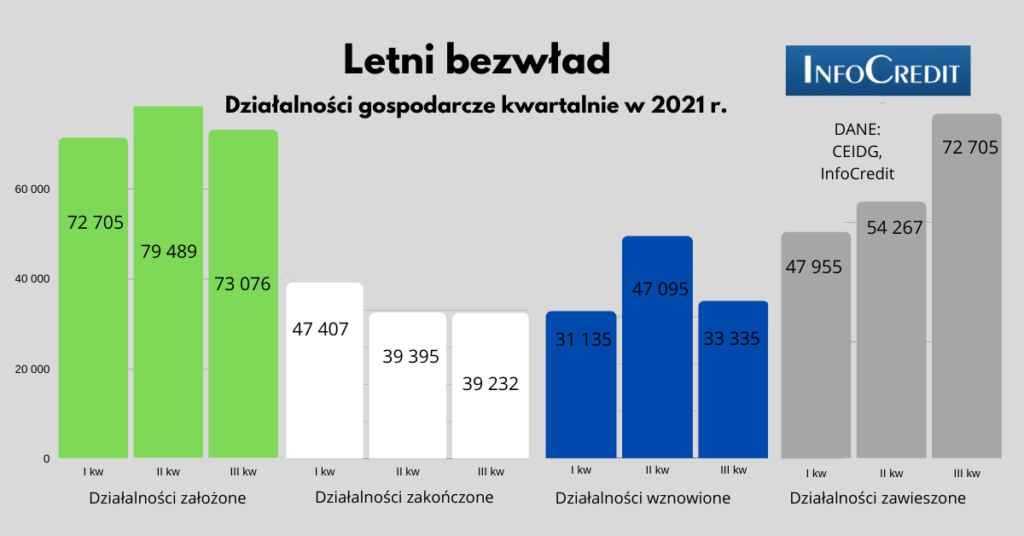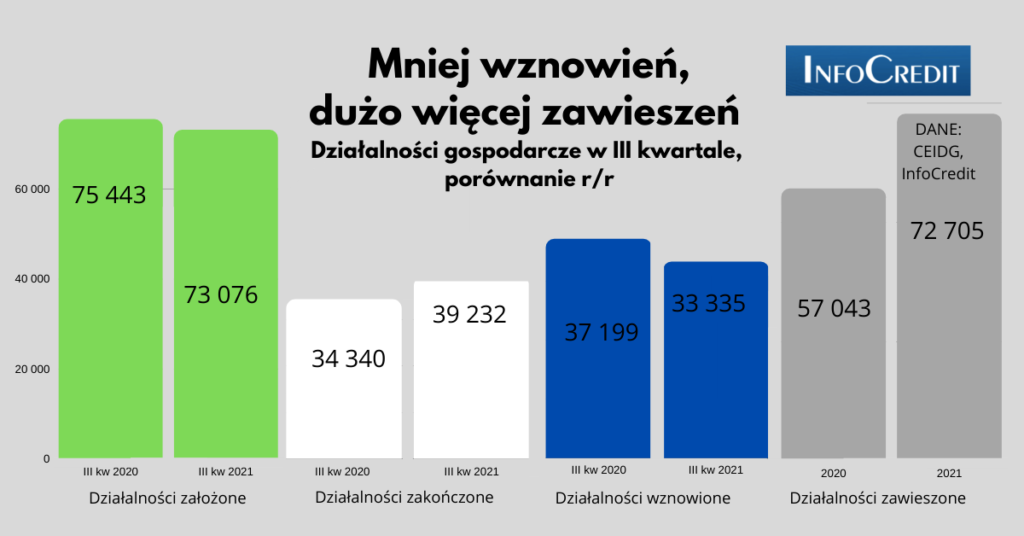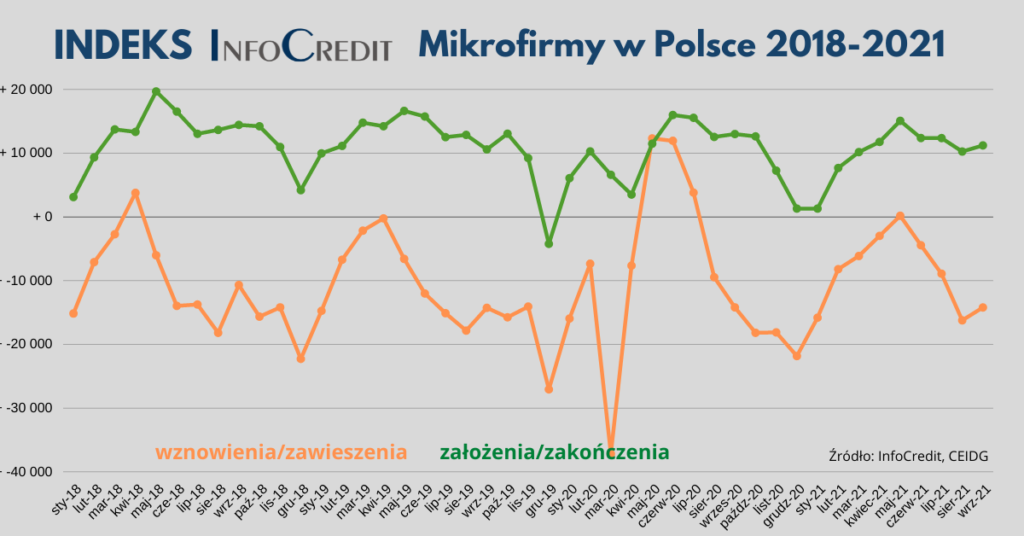Inertia in applications to CEIDG
After a promising first half of the year, Poles were no longer so keen to take matters into their own hands in the third quarter. There is no sign of recovery in CEIDG applications, although the economy is picking up. On the contrary, there is uncertainty.
In the first three quarters of 2021, 636,440 thousand applications were submitted, compared to 647 thousand in the same period of 2020, although this was a time of licking wounds after a sudden, deep recession.
In the third quarter of 2021, there was a significant increase in business suspensions – to 72.7 thousand from 48 thousand in the first quarter and 54 thousand in the second quarter. There were almost as many suspensions as new businesses.
The second quarter of 2021 and the entire first half of the year gave hope for the increasing willingness of Poles to start new businesses. There was a recovery in economic activity and a return to the situation that we observed before the epidemic (i.e. in the second quarter of 2019). The third quarter did not confirm this. Entrepreneurs know how to count, they see the rising costs of doing business. And it’s not just about inflation…
In Q3, a total of 73,000 new businesses were established (compared to 79.5 thousand in Q2 and 71.3 thousand in Q1), 39.2 thousand were closed (compared to 39.4 thousand in Q2 and 47.4 in Q1). However, there was a significant increase in suspensions. Resumptions slowed down – after 47 thousand in Q2, they fell to 33.3 thousand (31.1 thousand in Q1).

Taking into account Q3 year-on-year, the situation in new and closed businesses has not changed significantly, although the economic situation is much better today than a year ago. There are much fewer resumptions than a year ago (in Q3 2020 there were 37.2 thousand), and much more suspensions than in Q3 2020 (then 57 thousand).
– After H1, it might seem that in the following quarters the number of new businesses will grow faster than a year ago, there will be more resumptions and fewer suspensions. The economy has recovered, the labor market is in a very good situation and wages in the corporate sector are growing significantly. It might seem that a good opportunity has appeared on the market for independent specialists to go out on their own and provide services for several entities or simply – to start a business on their own. Meanwhile, we have a surprise – says Jerzy Wonka, Development Director at InfoCredit.
In his opinion, this is not just the effect of waiting for the fourth wave of the epidemic and fears of further restrictions. – Today, more than ever before, entrepreneurs must reckon with rising operating costs. We haven’t had such inflation for a long time. The costs of materials are rising significantly, not only for construction or industry. Above all, energy and fuel. We also don’t know what final changes in taxes and levies will apply next year. One thing is certain – businesses are simply afraid that they will bear the cost of the Polish Deal. And here, unfortunately, they are right – adds Jerzy Wonka.
What next? InfoCredit’s development director emphasizes that a full-time job offers greater stability than working on your own. Therefore, he does not expect the end of the year to bring any greater activity in CEIDG.

How do we calculate the InfoCredit Index?
The InfoCredit Index was created to track trends in micro-entrepreneurship, alternative forms of employment and self-employment at a time when the situation on the labor market and in individual industries is changing dynamically. The index, which is developed by the oldest company in Poland analyzing the economy, takes on a positive value when there are more new businesses than closures. When there are fewer than closed businesses – a negative value. In the same way, we also track the ratio of resumed to suspended businesses.
